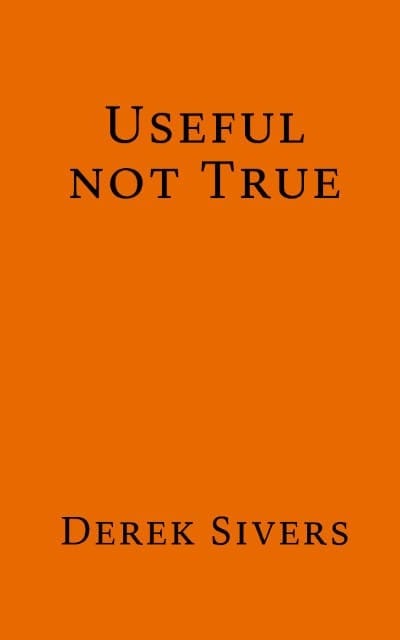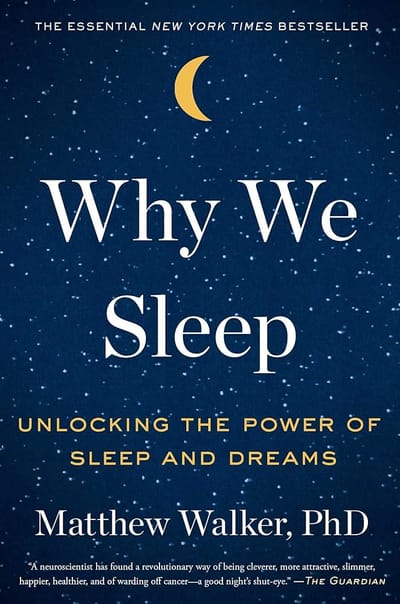The Courage to Be Disliked

Author: Fumitake Koga
🌰 The Book In a Nutshell
- Living for others’ validation only increases suffering because you're never putting your own expectations' before others'.
- Contribute for the sake of contribution, don't resent someone for not being rewarded to do so. Don't think of something like "I did the dishes therefore my wife should thank me each time I do it, and now I resent her because she did not this time". Reward-based relationships are transactional and, well I might need another blog post on that just to explain why that's a bad idea. Think of it this way, shifting from resentment to contribution can create a positive atmosphere.
- The book introduces Adlerian Psychology. If you know what this is and its philosophy, you might as well skip the reading. The book introduces the idea through a dialectical approach (like Socrates and his students talk about some topic).
👍 Recommended For Whom?
- Non-subscribers of etiological psychology: If you often blame your past for your current feelings, this book will turn that notion on its head. It will basically tell you that your past traumas are not always actually why you are the way you are right now. Some might find how the philosopher in the book approached this conclusion distasteful, as did the student in the book, so that's my caveat there if you're sensitive to it.
- Nihilists: The book encourages to detach meaning where it doesn't actually exist (especially one that is made up) and focus on what is over what isn't.
🧙🏼♂️ Top Quote
"You don't exist to meet others' expectations, and others' don't exist to meet yours
Notes
Avoid Power Struggles
Admitting a fault is not defeat, it's a step towards the solution. If you both want to be right even though neither of you are convinced by each other, it becomes counterproductive to engage in power struggles. Even when you’re sure you’re “right,” don’t criticize. The moment you shift the focus to winning rather than solving the issue, you’ve entered a power struggles.
Adlerian Psychology’s Objectives
Focus and rely on yourself to live in harmony with society. Believe in your own abilities despite what other people say, and while viewing others as friends along a shared journey.
Adler’s Life Tasks
These tasks reflect the varying distances and depths of human connection, essential for happiness as a social being. Adler categorizes relationships into three core tasks:
- Work – Building purpose and contribution.
- Friendship – Cultivating mutual support.
- Love – Fostering deep, intimate bonds.
Difficult Relationships
Don’t avoid difficult relationships, face them directly, even if the ultimate outcome is separation. It will allow you to deal with difficulties better in future relationships if you are prepared to take up the challenge now.
Avoiding Relationships is a Lie You're Telling Yourself to Escape Challenges
Pointing at flaws in others is something you have already justified prior to wanting avoiding a person. The thing is, those flaws have probably always existed. You wouldn't necessarily avoid the same flaw if another person had it. Adler called this evasion the “life lie.”
Courage, Not Good vs. Evil
Avoiding life tasks isn’t about being “bad” or “evil”, it’s about lacking the courage to face them.
Pragmatism
We choose our lives and lifestyles. It is not dictated to us because X happened during childhood therefore we don't do Y, and we do Z instead. It’s not about what we possess or our environment but how we use our resources and choices to shape our existence. We are always living and dancing in the present, the past and the future no longer exist, it's what we do now that forges our journey to wherever it may lead.
Money and Freedom
Money offers freedom by covering necessities, but true freedom and happiness come from living the life you want.
“Money is coined liberty…” Dostoyevsky
The opposite of this quote is not true. This means, not every kind of liberty you'd like to have can be exchanged with money. If you're upper-class, you may be asked to dress or be a certain way which actually prevents you from having your own liberty to be the way you want.
Living for Yourself: Whose Expectations Matter?
Not others’. Just as you don’t exist to meet their expectations, they don’t exist to meet yours. Think about it.
Separating Tasks
Ask yourself: Whose task is this? If it’s someone else’s responsibility, step back. Forcing change on others leads to resistance.
Discarding Others’ Tasks
Even with your children, it’s important to recognize their autonomy. Offer support, but the final choices—and consequences—are theirs. Do not reward or label a child a certain way because the child will start having expectations of themselves and of you to carry out what should otherwise by their own life tasks for the sake of themselves rather than to appease you or society.
Encouragement Over Praise
Instead of praising or criticizing, offer genuine encouragement that fosters self-reliance. Express gratitude with phrases like, “Thank you” or “That was a big help.” Focus on respect and joy to foster horizontal relationships, where everyone stands on equal ground as opposed to vertical where it's hierarchical and judgmental.
Confidence in Others
When you accept yourself and trust in others, you begin to see them as comrades. This looks past "contractual"This mindset allows for deeper relationships and more joy in interpersonal connections.
Workaholism and Harmony
Work is more than just your 9 to 5.
Going to work, and burying yourself with it just to come home and expect your significant other to do their responsibilities leads to disharmony. Not only that, this will make you avoid your life tasks by always using work as an excuse. If the reason you're doing work is to help contribute to your familial relationships but it's taking away your freedom to do so, then it's not really your life task. Work encompasses more than a career, it includes family work, community work, work needed to maintain hobbies, and self-care. Any time you're not doing something, you're not contributing to any of your life tasks that include the above, you're actually avoiding those life tasks and bringing disharmony to your life.
Life is a Series of Moments
Live in the here and now. Life isn’t a straight line—it’s a series of moments, each deserving our full attention. To continuously coast through them, doing the same thing over and over again, life in the past, present, and future will feel like nothing happened other than the passage of time.
Energeial vs. Kinetic Life
Adler described two approaches to life:
- Kinetic life: Focused on reaching a goal efficiently.
- Energeial life: Finding fulfillment in the process itself, like dancing.
Strive for an energeial life by living earnestly in each moment.
Small Goals, Big Results
Whatever your goal—whether it’s a university degree or a major life change, start small and consistent. This reminds me of Atomic Habits. Work daily with focus and intention, and the results will follow. It's not about the destination, but about the dance you do, even if it's 10 minutes a day, to get to that stage. They will eventually build up to that point, getting your dream job is not something that happens overnight.
Nihilism
Life itself has no inherent meaning. It’s up to us to create it. Every time someone says "should", and "must", it's often their expectations of life for you, not your own. This includes telling you what fashion to choose, what degree to get and so on. By focusing on the present and assigning our own purpose, we give life its richness.
So...
Adlerian psychology reminds us that life is a dance of courage needed to tackle life tasks with our community, and address our self-identified purpose in life. Living in alignment with our goals, while contributing to society for the sake of contributing to camaraderie and not an expectation of reward is when happiness is attained.
What’s your next courageous step? Leave it in the comments below.







Member discussion